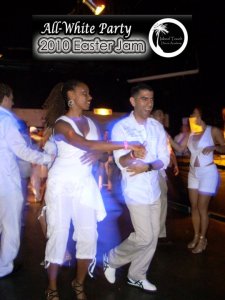The defendants in the Steubenville rape trial were found guilty yesterday. My initial reaction was elation. Jane Doe was sexually assaulted, then publicly humiliated, and despite the attempt to cast her as consenting to the abuse, her violators did not get away it.
Only that’s not exactly true. The chain of complicity in this case is long and tightly woven with bystanders who refused to intervene, friends and acquaintances who felt the ongoing assault of another human was worthy of laughter and sport, and still others who felt the need to rally against Jane, for the sake of young men who ostensibly had the rest of their lives ahead of them.
These complicated factors aside, two people were found guilty, and for that I was glad.
But I was also conflicted.
They were going to jail. That was the solution, you see. The end of the road. You do the crime, you do the time, and all that. But I felt, in a word, unsatisfied with that outcome. I tweeted:
I shared my earlier musings on alternatives to prison and restorative justice. Then I tweeted this:
I sat with my thoughts and feelings on the matter as others began to engage. For instance:
I am glad there was a trial and guilty parties were found to be so. But I felt the resolution was not a good solution; it solves nothing at all except to remove the offenders from the community. And then what? How does healing begin? Is this truly justice? Does a punitive approach really challenge rape culture? What else can be done?
Prison Culture held these same reservations and offered a thoughtful response. A poignant excerpt:
Do we believe that these two young men are going to unlearn rape culture in prison? How about all of their friends who seem to believe that the young men were unjustly convicted? Who will intervene with them to help them unlearn rape culture? The vast majority of our resources have been diverted to criminal legal approaches while rape crisis centers are being defunded and don’t have the capacity to do any prevention work with young people. Some will say that it isn’t either/or; That we can focus on criminal legal remedies while also doing community-based intervention/prevention work to eradicate rape culture. Yet it’s been decades and we still haven’t found the proper balance. Our primary focus on a criminal legal approach has in fact seemed to crowd out other interventions. More importantly, it has let community members off the hook from taking responsibility to interrupt or intervene in preventing or calling out rape. The social problem becomes the criminal legal system’s responsibility to solve and not ours as community members.
I am a proponent of restorative and transformative justice because I believe that they offer the best prospects to eradicate violence. I believe that survivors of violence should be centered in all interventions. Let’s focus on listening to survivors and on really engaging their claims. I want spaces for authentic and survivor-directed healing. I believe that our communities often enable harm and that therefore they must be engaged in addressing these harms. I believe that prisons are constitutive of violence in and of themselves and therefore are not viable anti-violence tools. I believe that perpetrators of violent acts must understand the impact of the harms they cause. Let’s create a context within which we encourage perpetrators to assume actual responsibility for harm. Let’s provide them an opportunity to be transformed if they will accept it. Finally, perpetrators should be expected to actively participate in repairing the harm that they have caused to their victims and by extension to our communities.
Yes.
Read the whole piece here.


